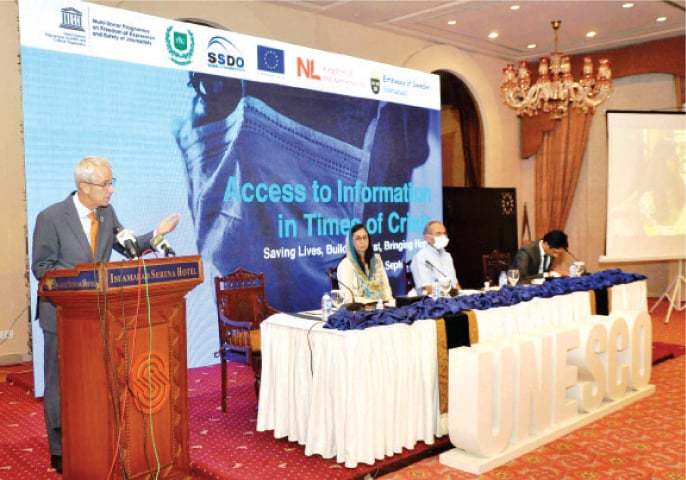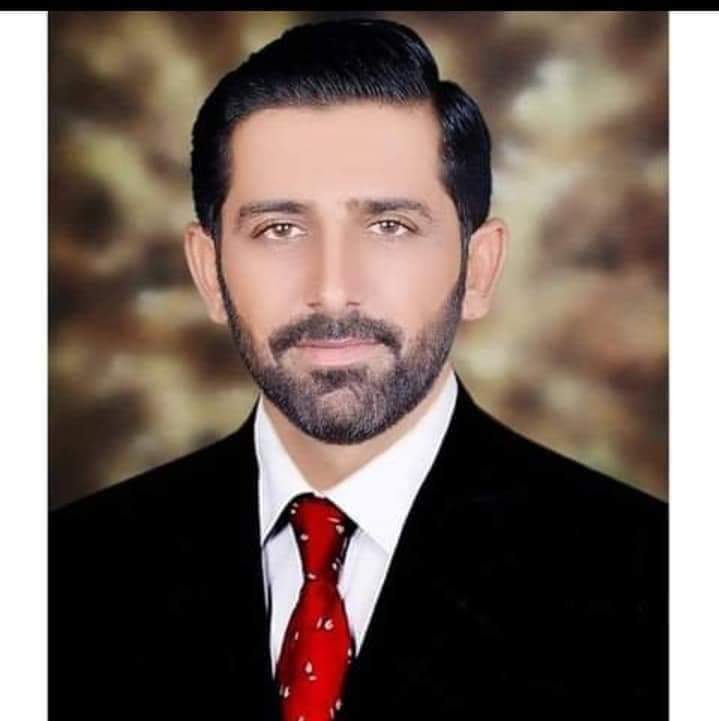‘Online appeal gives citizens access to public information in times of crisis’

Dutch Ambassador Wouter Plomp speaks at the event in Islamabad on Monday. — APP
ISLAMABAD: An event on ‘Access to Information in Times of Crisis’ brought together stakeholders from civil society, academia, private technology companies and the press on the International Day of Universal Access to Information on Monday.
The event was organised by Unesco, in collaboration with the Pakistan Information Commission (PIC), European Union, the embassies of the Netherlands and Sweden and the Sustainable Social Development Organisation (SSDO).
In her welcome note at the event, Unesco country representative Patricia McPhillips said: “The right to information, especially when overseen by special bodies, ensures that governments inform citizens on its actions, which is essential especially in times of crisis.
Unesco, PIC mark International Day of Universal Access to Information
She said Unesco, the PIC and other partners have developed an online appeal management system to digitise functioning and promote robust and fast online service delivery.
This system allows citizens uninterrupted and efficient access to public information in times of crisis.
A panel discussion was also held on ‘Access to Information and Local Solutions with Information Request Filers’, moderated by Maliha Shah and featuring Dr Abdul Hameed Nayyar, who used right to information (RTI) laws to resolve a water supply issue, investigative journalist Azaz Syed, and Shazia Mehboob, who uses RTI laws to highlight civic rights.
Dr Nayyar said: “Information is with held by officials only because that is seen to be a source of power and the people who don’t have access to information run around and try to gain their favour to get some information. As citizens we are all victims of such attitudes of officials.”
“Just yesterday, the executive council of the Pakistan Federal Union of Journalists has issued a declaration expressing their concern over the denial of the basic right of access to information and freedom of press,” Mr Syed said.
He said that before the commission was created, journalists had to apply to individual departments for information and were often unsuccessful.
Ms Mehboob shared that it is essential that the right to information is unalienable for citizens and is as much a responsibility for all citizens, particularly for journalists, who must access accurate, reliable information to inform the public.
At this time, she said, the average citizen is not exercising his or her right to information. The public sector must recognise that the benefits RTI laws hold for self-correction and improvements in governance.
Ambassador of the Netherlands Wouter Plomp said: “This year’s theme, ‘Saving lives, building trust, bringing hope’, highlights the importance of access to accurate information during a pandemic.”
“Public trust helps shape sustainable policies. The Pakistani Constitution guarantees access to information to all citizens but what matters most is effective implementation and the level of confidence of citizens in their public institutions and officials. Covid-19 has impacted or slowed down information requests but that is not a reason to restrict access to information but rather the contrary. Online platforms and digital technologies have provided us with alternative ways to continue our work,” he said.
Source: DAWN


